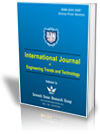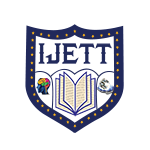Study of Behavioral Levers Enhancing Operational Excellence in the Context of the Industry 5.0 Transition
Study of Behavioral Levers Enhancing Operational Excellence in the Context of the Industry 5.0 Transition |
||
 |
 |
|
| © 2024 by IJETT Journal | ||
| Volume-72 Issue-8 |
||
| Year of Publication : 2024 | ||
| Author : Imane Boumsisse, Mariam Benhadou, Abdellah Haddout |
||
| DOI : 10.14445/22315381/IJETT-V72I8P126 | ||
How to Cite?
Imane Boumsisse, Mariam Benhadou, Abdellah Haddout, "Study of Behavioral Levers Enhancing Operational Excellence in the Context of the Industry 5.0 Transition," International Journal of Engineering Trends and Technology, vol. 72, no. 8, pp. 265-278, 2024. Crossref, https://doi.org/10.14445/22315381/IJETT-V72I8P126
Abstract
The transition to Industry 5.0 requires an adaptation of our approach to operational excellence to align with its core values. In this context of advanced technologies, it is imperative to examine the behavioral factors influencing operational excellence. This raises crucial questions about the ongoing relevance of these factors. Based on a literature review and the results of a survey of operational excellence practitioners, this study sheds additional insights on the role of behavioral factors in achieving operational excellence in a context where technological convergence is paramount. It develops a comprehensive conceptual model integrating relevant behavioral factors for operational excellence holistically and highlights their interactions. This study thus strengthens the link between academic research and professional practice, providing practical recommendations for the successful implementation of operational excellence in the industry 5.0 era.
Keywords
Behavioral factors, Critical success factors, Industry 5.0, Innovation, Operational excellence.
References
[1] Lee Bibby, and Benjamin Dehe, “Defining and Assessing Industry 4.0 Maturity Levels – Case of the Defence Sector,” Production Planning & Control, vol. 29, no. 12, pp. 1030-1043, 2018.
[CrossRef] [Google Scholar] [Publisher Link]
[2] Andreas Schroeder et al., “Capturing the Benefits of Industry 4.0: A Business Network Perspective,” Production Planning & Control, vol. 30, no. 16, pp. 1305-1321, 2019.
[CrossRef] [Google Scholar] [Publisher Link]
[3] Francesco Longo, Antonio Padovano, and Steven Umbrello, “Value-Oriented and Ethical Technology Engineering in Industry 5.0: A Human-Centric Perspective for the Design of the Factory of the Future,” Applied Sciences, vol. 10, no. 12, pp. 1-25, 2020.
[CrossRef] [Google Scholar] [Publisher Link]
[4] Keith Moran, Benefits of Industry 4.0, Sl Controls, 2023. [Online]. Available: https://slcontrols.com/benefits-of-industry-4-0/
[5] Daniel Paschek, Anca Mocan, and Anca Draghici, “Industry 5.0-The Expected Impact of Next Industrial Revolution,” Thriving on Future Education, Industry, Business, and Society, Proceedings of the MakeLearn and TIIM International Conference, Piran, Slovenia, pp. 125-132, 2019.
[Google Scholar] [Publisher Link]
[6] Volker M. Banholzer, “From „Industry 4.0“to „Society 5.0“and „Industry 5.0“: Value- and Mission-Oriented Policies,” Nuremberg Georg Simon Ohm Technical University, vol. 2022, no. 2, pp. 2-47, 2022.
[CrossRef] [Publisher Link]
[7] Xun Xu, “Industry 4.0 and Industry 5.0—Inception, Conception and Perception,” Journal of Manufacturing Systems, vol. 61, pp. 530-535, 2021.
[CrossRef] [Google Scholar] [Publisher Link]
[8] Aditya Akundi et al., “State of Industry 5.0-Analysis and Identification of Current Research Trends,” Applied System Innovation, vol. 5, no. 1, pp. 1-14, 2022.
[CrossRef] [Google Scholar] [Publisher Link]
[9] Anass Cherrafi et al., “The Integration of Lean Manufacturing, Six Sigma and Sustainability: A Literature Review and Future Research Directions for Developing a Specific Model,” Journal of Cleaner Production, vol. 139, pp. 828-846, 2016.
[CrossRef] [Google Scholar] [Publisher Link]
[10] Mariam Ali Ramadan et al., “Application of Six Sigma Methodology to Enhance the Productivity and Performance of a Hotel in the UAE,” The TQM Journal, vol. 35, no. 2, pp. 554-576, 2023.
[CrossRef] [Google Scholar] [Publisher Link]
[11] Melisa Ozbiltekin-Pala et al., “Analyzing Critical Factors of Strategic Alignment between Operational Excellence and Industry 4.0 Technologies in Smart Manufacturing,” The TQM Journal, vol. 36, no. 1, pp. 161-177, 2022.
[CrossRef] [Google Scholar] [Publisher Link]
[12] Toloue Miandar, Ambra Galeazzo, and Andrea Furlan, Coordinating Knowledge Creation: A Systematic Literature Review on the Interplay between Operational Excellence and Industry 4.0 Technologies, Knowledge Management and Industry 4.0, Knowledge Management and Organizational Learning, vol. 9, pp. 137-162, 2020.
[CrossRef] [Google Scholar] [Publisher Link]
[13] Claudio Sassanelli et al., “Industry 4.0 Driven Result-Oriented PSS: An Assessment in the Energy Management,” International Journal of Energy Economics and Policy, vol. 12, no. 4, pp. 186-203, 2022. [CrossRef] [Google Scholar] [Publisher Link]
[14] Siham Tissir et al., “Lean Six Sigma and Industry 4.0 Combination: Scoping Review and Perspectives,” Total Quality Management & Business Excellence, vol. 34, no. 3-4, pp. 261-290, 2023.
[CrossRef] [Google Scholar] [Publisher Link]
[15] Yaifa Trakulsunti et al., “The Application of Operational Excellence Methodologies in Logistics: A Systematic Review and Directions for Future Research,” Total Quality Management & Business Excellence, vol. 34, no. 5-6, pp. 538-557, 2023.
[CrossRef] [Google Scholar] [Publisher Link]
[16] M. Vijaya Sunder, and Anupama Prashar, “Characterization and Examination of Operational Excellence Deployment Failures: Mediation Effect of Technical and Behavioral Failure Factors,” IEEE Transactions on Engineering Management, vol. 70, no. 6, pp. 2080-2092, 2023.
[CrossRef] [Google Scholar] [Publisher Link]
[17] Richard S. McLean, Jiju Antony, and Jens J. Dahlgaard, “Failure of Continuous Improvement Initiatives in Manufacturing Environments: A Systematic Review of the Evidence,” Total Quality Management & Business Excellence, vol. 28, no. 3-4, pp. 219-237, 2017.
[CrossRef] [Google Scholar] [Publisher Link]
[18] Jiju Antony et al., “A Study into the Reasons for Process Improvement Project Failures: Results from a Pilot Survey,” International Journal of Quality & Reliability Management, vol. 36, no. 10, pp. 1699-1720, 2019.
[CrossRef] [Google Scholar] [Publisher Link]
[19] Jacobo Tijerina Aguilera, and Diego Andrés Martínez Treviño, “Critical Success Factors for the Implementation of Operational Excellence,” Proceedings of the International Conference on Industrial Engineering and Operations Management, Bangkok, Thailand, pp. 1-10, 2019.
[Google Scholar] [Publisher Link]
[20] Naveen Virmani, and Urmi Ravindra Salve, “Significance of Human Factors and Ergonomics (HFE): Mediating its Role Between Industry 4.0 Implementation and Operational Excellence,” IEEE Transactions on Engineering Management, vol. 70, no. 11, pp. 3976-3989, 2023.
[CrossRef] [Google Scholar] [Publisher Link]
[21] Oon Fok-Yew, Hartini Ahmad, and Shamsuddin Baharin, “Operational Excellence and Change Management in Malaysia Context,” International Journal of Case Reports in Medicine, vol. 2013, pp. 1-14, 2013.
[CrossRef] [Google Scholar] [Publisher Link]
[22] Rana Mohammad Shehadeh et al., “Investigating Critical Factors Affecting the Operational Excellence of Service Firms in Jordan,” Journal of Management Research, vol. 8, no. 1, pp. 18-49, 2016.
[CrossRef] [Google Scholar] [Publisher Link]
[23] Venkateswara Reddy Boya, and K.S. Sekhara Rao, “Operational Excellence in Pharmaceuticals – A Case Study on Factors Influencing Operational Excellence and their Importance,” International Journal of Research and Analytical Reviews, vol. 6, no. 1, pp. 909-914, 2019.
[CrossRef] [Google Scholar] [Publisher Link]
[24] Elizabeth O’Callaghan et al., “Critical Success Factors for Operational Excellence in the Pharmaceutical Industry: Insights from a Qualitative Study,” Lean, Green and Sustainability, IFIP Advances in Information and Communication Technology, Galway, Ireland, vol. 668, 2023.
[CrossRef] [Google Scholar] [Publisher Link]
[25] A.M. Carvalho, P. Sampaio, and E. Rebentisch, “On Agile Metrics for Operations Management: Measuring and Aligning Agility with Operational Excellence,” 2019 IEEE International Conference on Industrial Engineering and Engineering Management, Macao, China, pp. 1601-1605, 2019.
[CrossRef] [Google Scholar] [Publisher Link]
[26] André M. Carvalho et al., “Operational Excellence, Organizational Culture, and Agility: Bridging the Gap between Quality and Adaptability,” Total Quality Management & Business Excellence, vol. 34, no. 11-12, pp. 1598-1628, 2023.
[CrossRef] [Google Scholar] [Publisher Link]
[27] S.S. Nair, and K.A. Thomas, “Relationship between Leadership Support and Operational Excellence in Health Care Sector: A Study of Indian Health Care Managers,” Journal of Healthcare Quality Research, vol. 35, no. 2, pp. 117-122, 2020.
[CrossRef] [Google Scholar] [Publisher Link]
[28] Bilal Saeed et al., “Exploring the Impact of Transformational Leadership and Human Resource Practices on Operational Excellence Mediated by Knowledge Sharing: A Conceptual Framework,” International Journal of Scientific & Technology Research, vol. 9, no. 2, pp. 4458-4468, 2020.
[Google Scholar] [Publisher Link]
[29] Jiju Antony et al., “An Empirical Study into the Reasons for Failure of Sustaining Operational Excellence Initiatives in Organizations,” The TQM Journal, vol. 35, no. 7, pp. 1569-1587, 2023.
[CrossRef] [Google Scholar] [Publisher Link]
[30] Jiju Antony et al., “Critical Success Factors for Operational Excellence Initiatives in Manufacturing: A Meta-Analysis,” Total Quality Management & Business Excellence, vol. 34, no. 9-10, pp. 1152-1172, 2023.
[CrossRef] [Google Scholar] [Publisher Link]
[31] Novilda Asril, Zulkifli Zulkifli, and Lies Putriana, “Building Sustainable Business Excellence Through Knowledge Management, Innovation, Learning Agility, Talented HR, Organizational Culture as Mediator,” Journal of Education Technology Information Social Sciences and Health, vol. 2, no. 2, pp. 750-769, 2023.
[Google Scholar]
[32] Zaleha Fauziah et al., “Designing Student Attendance Information Systems Web-Based,” Aptisi Transactions on Technopreneurship, vol. 3, no. 1, pp. 23-31, 2021.
[CrossRef] [Google Scholar] [Publisher Link]
[33] Brigitta Callula et al., “A Structural Framework for Effective Time Management in Dynamic Work Environments,” APTISI Transactions on Management, vol. 8, no. 2, pp. 152-159, 2024.
[CrossRef] [Google Scholar] [Publisher Link]
[34] Elsa Pedroso, and Carlos F. Gomes, “Disentangling the Effects of Top Management on Management Accounting Systems Utilization,” International Journal of Accounting Information Systems, vol. 53, pp. 1-17, 2024.
[CrossRef] [Google Scholar] [Publisher Link]
[35] Rini Ade Octaviany et al., “Human Resource Development Strategy as Preparation for the Industrial Revolution Era 5.0,” International Journal of Educational Research, vol. 3, no. 3, pp. 1157-1164, 2022.
[CrossRef] [Google Scholar] [Publisher Link]
[36] Sebastian Saniuk, and Sandra Grabowska, “Knowledge and Skills Development for Implementing the Industry 5.0 Concept,” Proceedings of the 24th European Conference on Knowledge Management, vol. 24, no. 2, pp. 1188-1195, 2023.
[CrossRef] [Google Scholar] [Publisher Link]
[37] Anjali Sabale, and S. Gomathi, “Role of Artificial Intelligence in Corporate Training and Development - A Conceptual Paper,” International Journal of Intelligent Systems and Applications in Engineering, vol. 10, no. 4, pp. 590-595, 2022.
[Google Scholar] [Publisher Link]
[38] Vikas Swarnakar, A.R. Singh, and Anil. Kr. Tiwari, “Evaluating Importance of Critical Success Factors in Successful Implementation of Lean Six Sigma framework,” 1st International Conference on Advances in Mechanical Engineering and Nanotechnology, Jaipur, India, vol. 2148, no. 1, 2019.
[CrossRef] [Google Scholar] [Publisher Link]
[39] Amr Adel, “Future of Industry 5.0 in Society: Human-Centric Solutions, Challenges and Prospective Research Areas,” Journal of Cloud Computing, vol. 11, pp. 1-15, 2022.
[CrossRef] [Google Scholar] [Publisher Link]
[40] Seyed Hossein Razavi Hajiagha et al., “Unveiling the Relation between the Challenges and Benefits of Operational Excellence and Industry 4.0: A Hybrid Fuzzy Decision-Making Approach,” The TQM Journal, vol. 36, no. 1, pp. 51-70, 2022.
[CrossRef] [Google Scholar] [Publisher Link]
[41] Miriam Borchardt et al., “Industry 5.0 Beyond Technology: An Analysis through the Lens of Business and Operations Management Literature,” Organization, vol. 55, no. 4, pp. 305-321, 2022.
[CrossRef] [Google Scholar] [Publisher Link]
[42] Daria Battini et al., “Towards Industry 5.0: A Multi-Objective Job Rotation Model for an Inclusive Workforce,” International Journal of Production Economics, vol. 250, pp. 1-16, 2022.
[CrossRef] [Google Scholar] [Publisher Link]

